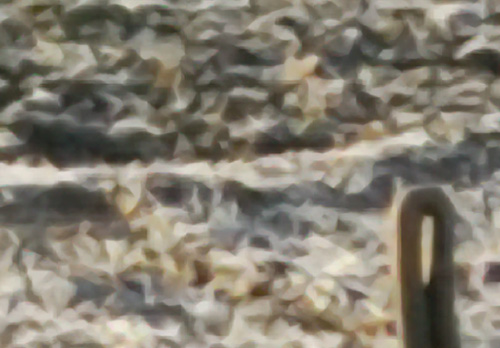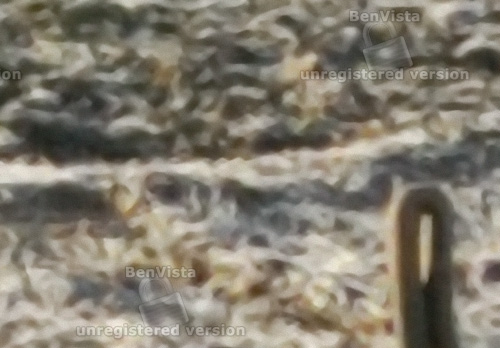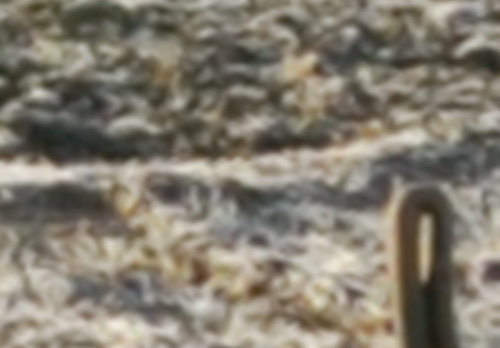A few weeks ago I received an email offering a 50% discount on some image enlargement software, BenVista PhotoZoom Pro 4 for Windows.
The examples in the promotional email were very impressive, and, to be honest, rather unbelievable. Since they offer a free trial, I thought I might as well download it and at least give it a try.
I cropped a small section from one of my images, then resized it by 400% using PhotoZoom Pro 4, onOne Perfect Resize 7, and Photoshop. For PhotoZoom and Perfect Resize I used the default enlargement settings. For Photoshop I used the Bicubic Sharper method. This resized the original image from 666x650px to 2664x2600px (2665x2601px for Perfect Resize).

You can download JPEGs of the resized files here: Perfect Resize, PhotoZoom Pro 4, Photoshop Bicubic sharper. (I used TIFFs for the actual comparison, but they are too large to put on the website).
For viewing on screen, I prefer the Photoshop resized version. The Perfect Resize and PhotoZoom Pro versions both look like they have had a watercolour paint filter or something similar applied to them.

onOne Perfect Resize 7

Benvista PhotoZoom Pro 4

Photoshop Bicubic Sharper
Normally I don't print my photos, but there's not much point testing image resizing programs without prints, since that's what enlarging an image is usually used for. So I printed each file through Photoshop on some Ilford glossy photographic paper.
For the printed images, Perfect Resize 7 came out with the most apparent detail / sharpness, followed by Photo Zoom Pro 4, then Photoshop Bicubic Sharper in last.
The colours of the bush and telegraph pole where they are against the sky look much better in the printed Perfect Resize image than the other two. The Photoshop version appears much more contrasty. However, they all look virtually the same (in terms of colour and tone) on the computer, so I think this is more likely down to the printer being a bit unpredictable.
The Photoshop and PhotoZoom versions have more grain, which is visible (when looking closely) in the printed images. The Perfect Resize version, meanwhile, has less visible grain / noise.
So Perfect Resize seems like the best image enlargement software to me. However, from normal viewing distances (for larger images you generally view from further away), there is very little difference between any of the methods.

Thank you very much for taking the time to research and write this excellent review, if only all reviews were as clear and concise as this one!
In Photoshop bucubic sharper is meant for downsizing and bicubic smoother is meant to be used when enlarging. For a true comparison, redo the Photoshop portion of this using bicubic smoother.